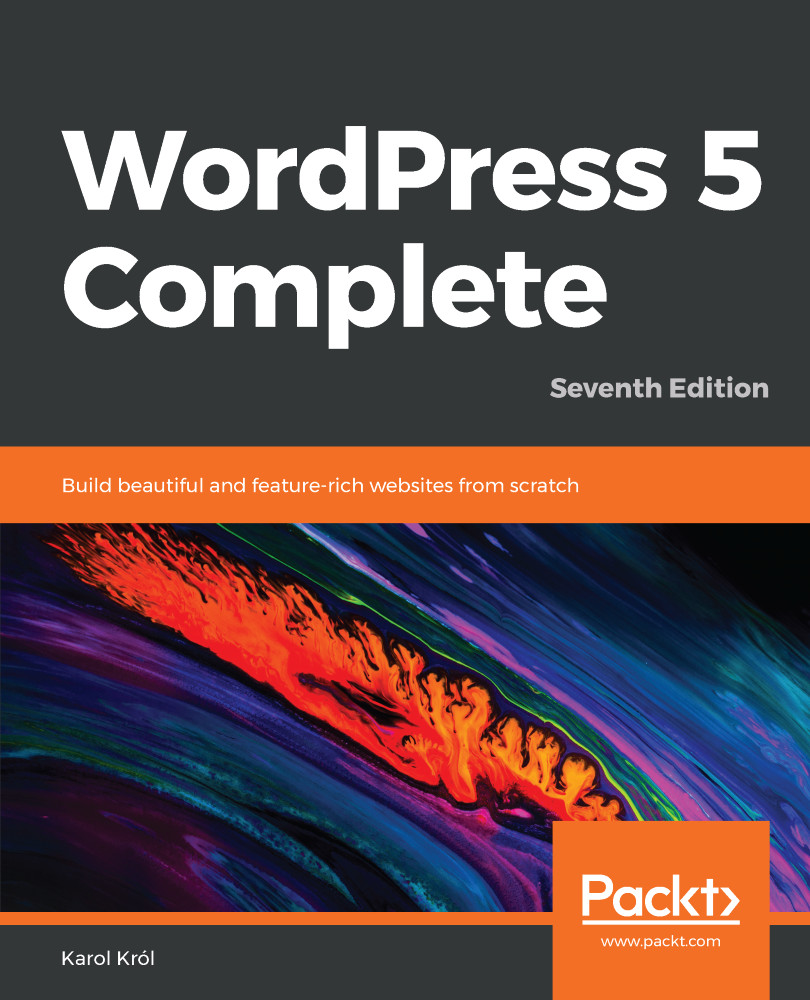So far in this book, we've focused on working with a personal website—one that belongs to, and is used by, just one person. However, many blogs are used differently—there may be a single blog or website with a variety of writers, editors, and administrators. This makes the site more like a community project or even an online magazine. Also, it's by no means uncommon for bigger online publishers to use WordPress as the base of their websites, in which case the site has a number of authors, editors, reviewers, and overall contributors with varying responsibilities, not to mention the technical staff or designers. All those people should have their own user accounts when interacting with the site.
Furthermore, even if it's just you managing your personal WordPress website, you should still make your own account as secure...



